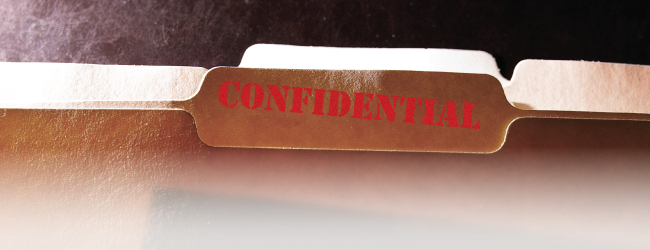
Update on Mediation Confidentiality
A magazine about Alternative Dispute Resolution in 2017 would not be complete without mentioning pending efforts to limit or create exceptions to the absolute confidentiality of mediation that is provided under California Evidence Code Section 1119. Statutory changes may well be implemented in 2018 and 2019. Both mediators and participants should understand the possibility that mediation communications and writings may be discoverable in certain situations.
Two California court decisions that protected the absolute privilege, despite creating arguably unfair results, have caused much consternation. In the first case, Cassel v. Superior Court, 51 Cal. 4th 113 (2011), the California Supreme Court examined the effect of the mediation confidentiality statutes on private discussions between a mediating client and attorneys who represented him in the mediation. Michael Cassel sued his former attorneys for breach of professional, fiduciary, and contractual duties. He alleged that during a mediation, his attorneys had given bad advice, had a conflict of interest, and had coerced him to settle for a lower amount than he had told them he would accept, and for less than the case was worth.
Before trial, the defendant attorneys moved to exclude all evidence of private attorney-client discussions immediately preceding, and during, the mediation, asserting that the evidence was protected under the mediation confidentiality statutes. The Court of Appeal reasoned that the mediation confidentiality statutes did not extend to communications between a mediation participant and his or her own attorneys outside the presence of other participants in the mediation.
The California Supreme Court disagreed, stating that the mediation privilege broadly provides for the confidentiality “of things spoken or written in connection with a mediation proceeding” Cassel, 51 Cal. 4th at 117-18. The Court noted that the statutory purpose of mediation confidentiality is to encourage a candid and informal exchange by “eliminating a concern that things said or written in connection with [a mediation] will later be used against a participant,” Id. at 124. In a concurring opinion, Justice Ming Chin questioned whether the Legislature had fully considered whether attorneys should be shielded from accountability this way. He invited the Legislature to consider better ways to balance the competing interests rather than simply providing that an attorney’s statements made during mediation to the client may never be disclosed, Id. at 139.
California Law Review Commission Study
In 2012, the California Law Review Commission was given the task of studying “the relationship between mediation confidentiality and attorney malpractice and other misconduct.” Although the Commission has not yet offered a final proposal, its current discussion draft would allow discovery and admission of communications and writings made during or prepared for a mediation if (1) relevant to an allegation of professional misconduct in the context of a mediation and (2) sought or proffered in a professional liability action or a state bar complaint against the lawyer. http://www.clrc.ca.gov/pub/2017/MM17-08.pdf. If adopted, this recommendation will allow the parties in the professional liability action to obtain records and testimony not only from their own counsel, but the mediator and other counsel as well. The Draft Tentative Recommendation is on the agenda for the Commission’s April 13, 2017 hearing, which will be held in Oakland. http://www.clrc.ca.gov/pub/Agenda-pdf/Agenda1704.pdf. At the present time, it appears that the Law Revision Commission will strike a balance in favor of protecting litigants from malpractice by their counsel, even if it means that the broad assurances of confidentiality in mediation are reduced.
Disclosures Required In Marital Dissolution Not Protected
The second case, Lappe v. Superior Court, 232 Cal. App. 4th 774 (2014), arose in a marital dissolution. To ensure that the spouses provide accurate disclosures and that community property is equally divided, Family Code section 2100 et seq. requires the exchange of declarations of disclosures as part of a dissolution proceeding and before entry of any judgment. Frequently, the parties resolve allocation of assets through mediation and prepare the required disclosures with a mediator’s help.
Gilda Lappe participated in mediation with her then husband, Murray Lappe, who completed his mandatory disclosure during the mediation. The disclosure stated that his business was worth $20 million. Following the mediation, the parties entered a stipulated judgment, in which Gilda Lappe released her community property interest in exchange for payment of $10 million. Approximately five months later, Murray Lappe allegedly sold the company for $75 million. Gilda Lappe moved to set aside the judgment on the grounds of fraud, perjury, distress, and mistake. The trial court denied the motion, holding that the husband’s representations of value were inadmissible under the mediation privilege. Lappe, 232 Cal. App. 4th at 777. The appellate court reversed, finding that mediation confidentiality statutes do not apply to statutorily-mandated disclosures that must be made regardless of whether the parties participate in mediation. The appellate court held that “because exchange of the declarations is mandated by the Family Code, these documents would have existed (and would have been exchanged) even if the parties had never agreed to mediate. Their introduction at mediation does not obviate the disclosure obligation or shield the declarations from discovery.” Lappe, 232 Cal. App. 4th at 785.
SB 217, which is designed to codify the appellate decision in Lappe, will add a new paragraph (4) to Evidence Code section 1120 to read:
[(b) This chapter does not limit any of the following:…]
“(4) The admissibility of declarations of disclosure required by Sections 2104 and 2105 of the Family Code, even if prepared for the purpose of, in the course of, or pursuant to, a mediation or a mediation consultation.”
You can track SB271’s progress, and learn of any amendments to it, at https://leginfo.legislature.ca.gov/faces/billNavClient.xhtml?bill_id=201720180SB217.